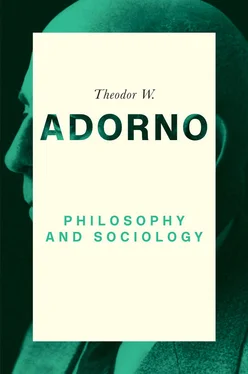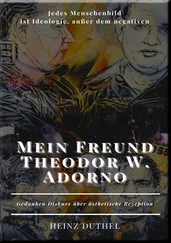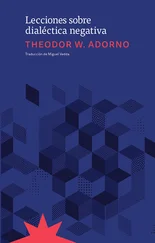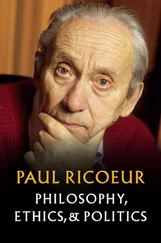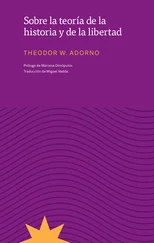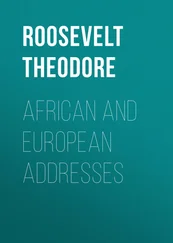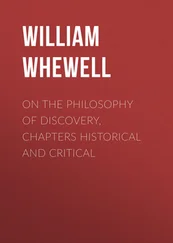11 11 Adorno ascribes the concepts of the ‘constituting’ and the ‘constituted’ to Kant in other places too (Drei Studien zu Hegel, GS 5, pp. 258–69, and Negative Dialektik, GS 6, p. 239; see Hegel: Three Studies, trans. Shierry Weber Nicholsen, Cambridge, MA, 1993, pp. 9–22, and Negative Dialectics, trans. E. B. Ashton, Routledge, 1973, p. 241). In fact, these specific terms are not actually used by Kant himself. Adorno discusses the concepts in question and the problem he takes to be involved here in lecture 14 of the aforementioned course on the first Critique (NaS IV.4., pp. 226–41; Kant’s Critique of Pure Reason, trans. Rodney Livingstone, Cambridge, 2001, pp. 149–59).
12 12 Reading ‘nicht diskursiven’ for ‘den kursiven’.
13 13 Edmund Husserl (1859–1938) distinguished between ‘sensuous intuition’ and what he called ‘categorial intuition’. See Husserliana: Gesammelte Werke, ed. H. L. von Breda et al., The Hague, 1956–, Vol. XIX.2, Logische Untersuchungen. Zweiter Band. Untersuchungen zur Phänomenologie und Theorie der Erkenntnis. Zweiter Teil, ed. Ursula Panzer, pp. 657–963; Logical Investigations, Vol. II, trans. J. N. Findlay, Routledge, 2001, pp. 271–92. Adorno also refers to this issue in his Metakritik der Erkenntnistheorie:We may perhaps surmise that this is one of the causes for Husserl’s effect. His philosophy codifies an objectively historical experience without deciphering it, viz. the withering away of argument. Consciousness finds itself at a crossroads. Though the call to insight [Schau] and the scorn of discursive thought may furnish the pretext for a commandeered world view and blind subordination, it also exhibits the instant in which the correctness of argument and counter-argument disappears, and in which the activity of thought consists only in calling what is by its name. Namely, what everyone already knows, so no more arguments are needed, and what no one wants to know, so no counter-argument need be heard. … Husserlian analyses, and even the paradoxical construction of categorial intuition, remain, in Hegelian terms, completely mired in mere reflection. (GS 5, pp. 212f.; Against Epistemology: A Metacritique, trans. Willis Domingo, Cambridge, MA, 2013, pp. 209–10)
14 14 See Adorno’s remarks in Jargon der Eigentlichkeit: Zur deutschen Ideologie:The notion of the double character of Dasein, as ontic and ontological, expels Dasein from itself. This is Heidegger’s disguised idealism. For the dialectic in the subject between the existent and the concept becomes being of a higher order; and the dialectic is brought to a halt. Whatever praises itself for reaching behind the concepts of reflection – subject and object – in order to grasp something substantial, does nothing but reify the irresolvability of the concepts of reflection. It reifies the impossibility of reducing one into the other, into the in-itself. This is the standard philosophical form of underhanded activity, which thereupon occurs constantly in the jargon. It vindicates without authority and without theology, maintaining that what is of essence is real, and, by the same token, that the existent is essential, meaningful, and justified. (GS 6, pp. 493f.; The Jargon of Authenticity, trans. Knut Tarnowski and Frederic Will, London, 1973, pp. 120–1)
15 15 In the following winter semester of 1960/61 Adorno did indeed offer a lecture course entitled ‘Ontologie und Dialektik’ (NaS IV.7; Ontology and Dialectics, trans. Nicholas Walker, Cambridge, 2019).
16 16 The quotation comes from scene 2 of Wagner’s opera Das Rheingold, where Fricka addresses her spouse Wotan in the following words: ‘Concern for my husband’s fidelity, / drives me to ponder in sadness / how yet I might bind him to me / when he is drawn to roam afar: / a glorious dwelling, / splendidly furnished / was meant to hold you here / in tranquil repose’ (Richard Wagner, Sämtliche Schriften und Dichtungen, Leipzig, 1911, vol. 5, p. 215).
17 17 In a series of lectures delivered in the winter semester of 1929/30 Martin Heidegger (1889–1976) had declared that atransformation of seeing and questioning is always the decisive thing in science. The greatness and vitality of a science is revealed in the power of its capacity for such transformation. Yet this transformation of seeing and questioning is misunderstood when it is taken as a change of standpoint or shift in the sociological conditions of science. It is true that this is the sort of thing which mainly or exclusively interests many people in science today – its psychologically and sociologically conditioned character – but this is just a facade. Sociology of this kind relates to real science and its philosophical comprehension in the same way in which one who clambers up a facade relates to the architect or, to take a less elevated example, to a conscientious craftsman. (Martin Heidegger, Die Grundbegriffe der Metaphysik, ed. Friedrich Wilhelm von Hermann, Frankfurt, 2004, p. 379; The Fundamental Concepts of Metaphysics: World, Finitude, Solitude, trans. Nicholas Walker and William McNeill, Bloomington, IN, 1995, p. 261)Adorno could not have had direct knowledge of these lectures (which were first published in 1983) but probably heard these remarks on sociology going the rounds.
18 18 See Max Weber, Soziologische Grundbegriffe, Tübingen, 1960 (an offprint from: Max Weber, Wirtschaft und Gesellschaft, 4th edn, ed. Johannes Winckelman, 1956, pp. 1–30). This opening chapter from Economy and Society is included in Max Weber, The Theory of Social and Economic Organization, ed. Talcott Parsons, New York, 1964, pp. 87–157.
19 19 On the introduction of the term ‘sociology’ by Auguste Comte (1798–1857), see Adorno’s footnote in the opening chapter of Soziologische Exkurse:The term ‘sociology’ can be found in Comte in his letter to Valat of December 25, 1824 (Lettres d’Auguste Comte à Monsieur Valat, Paris, 1870, p. 158). The term was made public in 1838 in the fourth volume of Comte’s chief work. Up to that point he had designated the science at which he was aiming ‘physique sociale’. He justified the introduction of the new term as follows: ‘I believe that at the present point I must risk this new term, physique sociale, in order to be able to designate by a single word this complementary part of natural philosophy which bears on the postivie study of the totality of fundamental laws proper to social phenomena.’ (Soziologische Exkurse, ed. Theodor Adorno and Walter Dirks, Frankfurt, 1956, p. 18; Aspects of Sociology, by The Frankfurt Institute of Social Research, trans. John Viertel, London, 1973, pp. 11–12)
20 20 Claude-Henri de Rouvoy, Comte de Saint-Simon (1760–1825), is generally regarded as one of the founding fathers of sociology as a specific discipline. From 1817 to 1824 Saint-Simon was Comte’s student, secretary and confidante.
21 21 Claude Adrien Helvétius (1715–1771) and Paul Thiry d’Holbach (1723–1789) both regarded themselves as followers of John Locke (1632–1704). Like Locke, they espoused the theory of innate ideas and regarded human beings as essentially the products of their environment. In the essay referred to in the previous note, Adorno says thatThus the left-wing encyclopedists Helvetius and Holbach proclaim that prejudices of the sort which Bacon attributed to man universally have their definite social function. They serve the maintenance of unjust conditions and stand in opposition to the realization of happiness and the establishment of a rational society. … To be sure, the Encyclopedist too did not as yet attain a comprehensive insight into the objective origin of ideologies and the objectivity of their social function. For the most part prejudices and false consciousness are traced back to the machinations of the mighty. In Holbach it is said: ‘Authority generally considers it in its interest to maintain received opinions [les opinions recues]: the prejudices and errors which it considers necessary for the secure maintenance of its power are perpetuated by this power, which never reasons [qui jamais ne raisonne]’ At approximately the same time, however, Helvetius, perhaps the thinker among the Encyclopedists endowed with the greatest intellectual power, had already recognized the objective necessity of what was attributed by others to the ill will of camarillas: ‘Our ideas are the necessary consequence of the society in which we live.’ (Institut für Sozialforschung, Soziologische Exkurse, pp. 164f.; Aspects of Sociology, pp. 184–5)The quotation is from d’Holbach’s Système de la nature ou des lois du monde physique et du monde moral and is cited in German translation by Hans Barth in his book Wahrheit und Ideologie, Zurich, 1945, p. 69. In the same essay Adorno quotes a passage from Helvétius, De l’esprit, also in Barth’s German translation, p. 62. In this connection, see also Adorno’s Beitrag zur Ideologienlehre, GS 8, pp. 457–77.
Читать дальше
